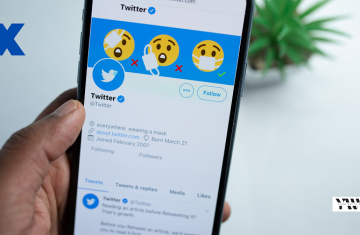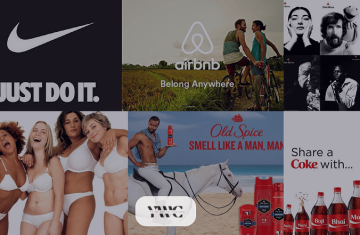At some point, you’ve most likely wondered, “why should I adopt storytelling as my business-to-business marketing (B2B) strategy?” Perhaps, you doubted its effectiveness as a strategic tool.
Truth is, a lot of tools and strategies have been developed, deployed and refined since marketing became a concept. But storytelling hits different. It’s only wise for B2B entrepreneurs to adopt the storytelling technique to complement other marketing strategies.
In this blog post, we’ll discover how to use storytelling in B2B marketing. From identifying your brand’s core narrative to leveraging employee stories, storytelling can have a huge impact in your B2B marketing.
What is Storytelling in B2B Marketing?
Storytelling in B2B marketing is the art of using narratives to convey a company’s message, values, and solutions in a way that resonates with other businesses. Unlike B2C storytelling, which often focuses on emotions, B2B storytelling balances emotional appeal with logical reasoning, aiming to build trust, demonstrate expertise, and foster long-term relationships.
Why is Storytelling Important in B2B Marketing?
1. Building Trust and Credibility
In B2B transactions, trust is paramount. A study by Edelman found that 81% of B2B buyers would not engage with a brand they do not trust . Storytelling helps humanize a brand, making it more relatable and trustworthy. By sharing authentic stories about your company’s journey, successes, and even failures, you demonstrate transparency, which is key to building credibility.
2. Differentiating Your Brand
In a sea of competitors offering similar products or services, what sets your brand apart? Storytelling allows you to highlight your unique value proposition in a way that facts and figures alone cannot. For example, instead of merely stating that your product is innovative, tell a story about how it solved a critical problem for a client, resulting in significant growth.
3. Engaging Decision-Makers
B2B purchases often involve multiple stakeholders, each with different priorities. A well-crafted story can engage these decision-makers on a deeper level, addressing their concerns and showing how your solution aligns with their business goals. Stories have the power to make complex information more digestible, helping you communicate the benefits of your offerings in a way that resonates with your audience.
Content Marketing vs. Storytelling: What’s the Difference?
How to Incorporate Storytelling in B2B Marketing
1. Identify Your Brand’s Core Narrative
Before you can tell compelling stories, you need to identify your brand’s core narrative. This is the overarching story that defines who you are, what you stand for, and why you exist. It’s not just about your products or services; it’s about the mission and vision that drive your company.
2. Use Customer Success Stories
One of the most powerful forms of B2B storytelling is the customer success story. These stories showcase real-world examples of how your product or service has made a positive impact on a client’s business. By focusing on the challenges your customer faced, the solution you provided, and the results achieved, you create a relatable narrative that other potential clients can see themselves in.
3. Leverage Data to Enhance Your Story
While storytelling is about emotion, in the B2B space, it’s also crucial to back up your narrative with data. Incorporate relevant statistics, case studies, and ROI metrics to reinforce the credibility of your story. For instance, if your software solution increased a client’s productivity by 30%, include that data point to make your story more compelling.
4. Create a Consistent Story Across Channels
Your brand’s story should be consistent across all marketing channels, from your website and social media to your email campaigns and sales presentations. Consistency helps reinforce your brand identity and ensures that your message is clear, regardless of where your audience encounters it.
5. Leverage Employee Stories
Your employees are some of your most powerful storytellers. Sharing their personal experiences and insights can add authenticity to your brand narrative. For example, an employee’s story about how they solved a client’s problem can be more relatable and impactful than a generic case study.
Frequently Asked Questions (FAQ)
How does storytelling impact B2B marketing?
Storytelling impacts B2B marketing by building trust, differentiating brands, and engaging decision-makers on a deeper level. It helps humanize a brand, making it more relatable and memorable. By conveying complex information in a narrative format, storytelling also makes it easier for businesses to communicate the value of their offerings.
What are some examples of storytelling in B2B marketing?
Examples of storytelling in B2B marketing include customer success stories, brand origin stories, and relatable case studies. These stories illustrate how a company’s products or services have solved real-world problems for clients, highlighting the benefits and outcomes in a relatable way.
Why is storytelling important in B2B marketing?
Storytelling is important in B2B marketing because it builds credibility, fosters emotional connections, and differentiates brands in a competitive marketplace. It allows companies to communicate their values, mission, and the impact of their solutions in a way that resonates with their target audience.
Can storytelling improve B2B sales?
Yes, storytelling can improve B2B sales by making a brand more relatable, memorable, and trustworthy. Stories engage decision-makers on an emotional level, helping to build the trust and credibility needed to close deals. Additionally, storytelling can simplify complex information, making it easier for potential clients to understand the value of a solution.
You May Also Like:
How to Use Storytelling in Marketing to Close Sales
10 Ways to Identify Your Brand’s Core Story
Top 10 Brands That Have Mastered Storytelling in Marketing
7 Common Storytelling in Marketing Mistakes and How to Avoid Them
Conclusion
In the B2B world, where relationships and trust are the cornerstones of success, storytelling is an indispensable tool. It not only helps differentiate your brand but also builds credibility, engages decision-makers, and ultimately drives business growth.
By leveraging storytelling in your B2B marketing, you can create a lasting impact in the minds of your target audience, converting passive leads into paying customers.
I’m Debbie, “Your Write Choice.” I offer content marketing and ghostwriting services that connects and converts, editing par excellence and peace of mind for my clients. Hire my services.
Download my free storytelling for sales workbook.
Enroll in my “Master Storytelling for Sales Course.”










